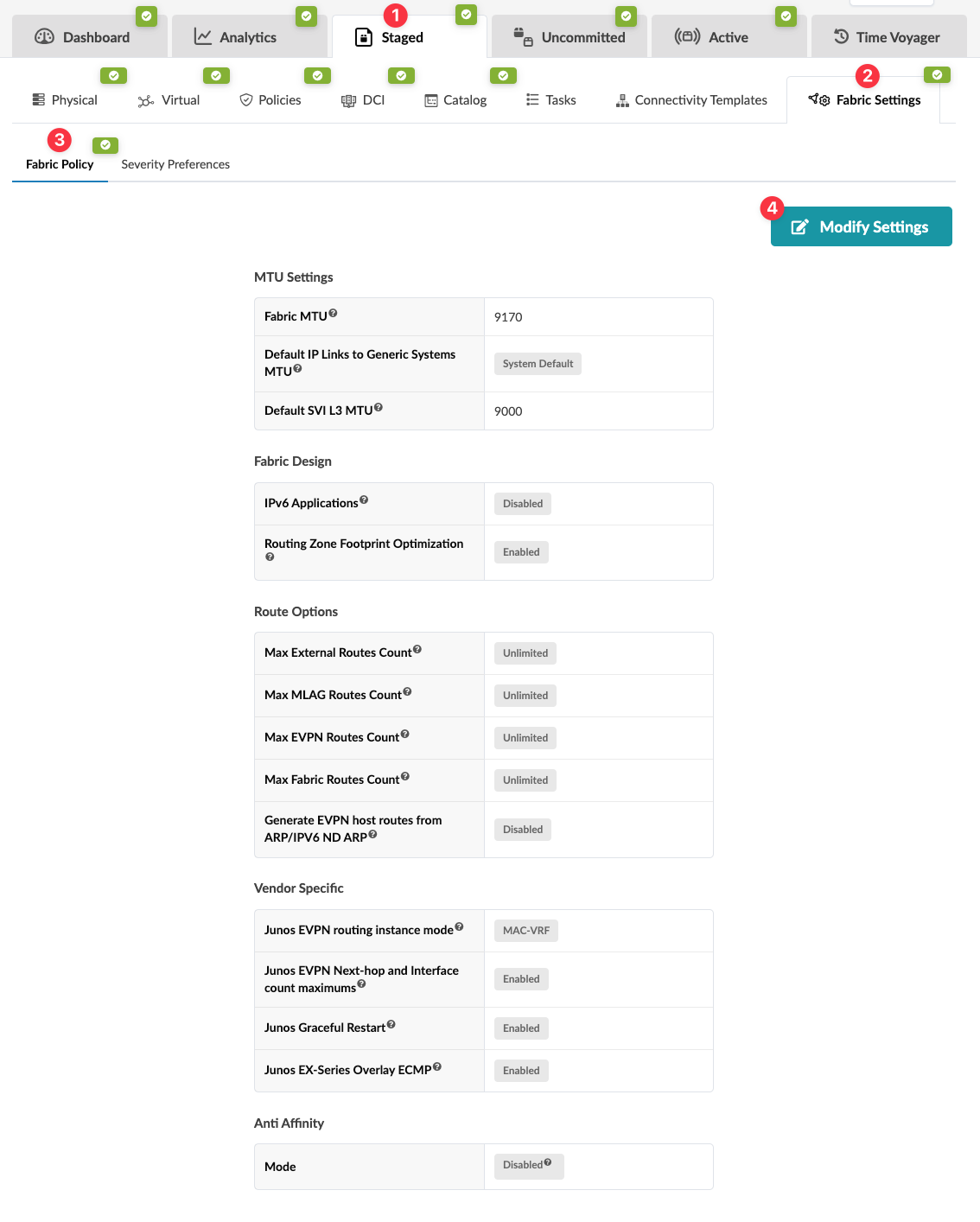Vendor-specific Fabric Settings
Vendor-Specific Fabric Settings Overview
The vendor-specific section includes the following settings:
| Parameter | Description |
|---|---|
| Junos EVPN routing instance mode | Selects non-EVO Junos EVPN mac-vrf rendering mode. Default indicates EVPN configuration will be added to the default switch instances on Junos. vlan_aware will transition Junos to a single EVPN mac-vrf vlan-aware instance named evpn-1, similar to Junos EVO config rendering in Apstra. This option is ignored for Junos EVO devices. Existing deployed blueprints will be opt-in from default to mac-vrf. Switching designs is service-impacting. New blueprints will be mac-vrf by default. |
| Junos EVPN Next-hop and Interface count maximums | Enables configuring the maximum number of nexthops and interface numbers reserved for use in EVPN-VXLAN overlay network on Junos leaf devices. Default is disabled. Modifying this option may be disruptive as a Day 2 operation. |
| Junos Graceful Restart | Enables the Graceful Restart feature on Junos devices |
| Junos EX-series Overlay ECMP | Enables VXLAN Overlay ECMP on Junos EX-series devices |
Update Vendor-specific Fabric Settings
To update vendor-specific fabric settings from the
Apstra GUI:
When you're ready to activate your changes, commit them from the Uncommitted tab.

